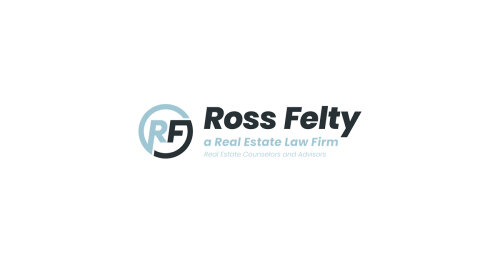Best Foreclosure Lawyers in Jupiter
Share your needs with us, get contacted by law firms.
Free. Takes 2 min.
Free Guide to Hiring a Real Estate Lawyer
List of the best lawyers in Jupiter, United States
1. About Foreclosure Law in Jupiter, United States
Foreclosure in Jupiter is the legal process used to recover a property when a homeowner defaults on a mortgage. In Florida, most foreclosures are handled through the court system, meaning a judge oversees crucial steps and ultimately approves a sale. This makes the process more formal and can affect timelines and protections for homeowners.
As a resident of Jupiter, you will typically engage with the Palm Beach County circuit court system if a foreclosure action is filed. A foreclosure sale usually occurs after a court enters a final judgment of foreclosure and orders the property to be sold at public auction. Throughout the process, borrowers may pursue loan modifications, short sales, or other loss-mitigation options to avoid or delay a sale.
Understanding your rights is essential. For example, you can respond to a foreclosure complaint, request mediation, or seek bankruptcy protection if appropriate. Federal and state resources offer guidance on mortgage relief programs and consumer protections that apply in Florida and can influence a foreclosure case.
“Foreclosure in Florida is typically a judicial process requiring a court order before the sale.”
Sources: Florida foreclosures are generally handled as court cases in the state’s circuit courts, and federal guidance provides general foreclosure protections and options for homeowners who are at risk of losing their home.
Key context for Jupiter residents: Florida law governs the steps, timing, and rights in foreclosure actions. Local courts may offer mediation programs and scheduling practices that affect how quickly a case moves. Always verify specifics with a licensed attorney who can tailor guidance to your exact county and court.
Authoritative reference points for general foreclosure basics include the U.S. Department of Housing and Urban Development (HUD) and the Consumer Financial Protection Bureau (CFPB), which outline common relief options and consumer protections in foreclosure scenarios.
Useful sources include HUD’s foreclosure prevention resources and CFPB’s foreclosure guidance, which provide state- and nationwide context for homeowners facing foreclosure.
2. Why You May Need a Lawyer
Facing foreclosure in Jupiter often requires expert legal counsel to protect your rights and explore options. Here are concrete scenarios where hiring a foreclose-tion attorney or legal counsel makes a difference.
- You received a foreclosure complaint and fear a default judgment. A lawyer can evaluate service validity, determine defense grounds, and file an answer on your behalf to prevent a rushed judgment.
- The bank accelerated your loan but you believe you qualify for a modification or repayment plan. An attorney can negotiate with the lender and preserve options like a trial modification or forbearance.
- Notice or service problems occurred, such as improper foreclosure notice timing or defective delivery. A lawyer can challenge the process and seek to pause or dismiss the case if due process was violated.
- You suspect incorrect amounts or fees were added to the loan balance. A legal counsel can request an accounting and uncover improper charges or misapplied payments.
- You are considering alternatives like a short sale or deed in lieu. An attorney can negotiate terms, help protect your rights, and ensure paperwork does not create future liability.
- You are contemplating bankruptcy to halt foreclosure. A lawyer can assess how an automatic stay interacts with the mortgage and whether post-bankruptcy options exist.
3. Local Laws Overview
In Jupiter, Florida, foreclosure actions are governed primarily by state statutes and court rules. The following two to three legal frameworks shape how foreclosure proceeds in practice.
- Florida Statutes Chapter 702 - Foreclosure of Mortgages-This statute governs the process for judicial foreclosures of real property secured by a mortgage. It outlines filing requirements, timelines, and appeals related to foreclosure actions in Florida courts.
- Florida Rules of Civil Procedure-These rules govern the procedural steps for civil actions, including foreclosure, such as serving notices, deadlines for pleadings, and motions. They control how foreclosure cases progress through the court system.
- Federal consumer protection context from CFPB guidelines-While not specific to Jupiter, CFPB resources describe borrower rights, loan modification options, and protections that can influence Florida foreclosure cases when lenders service federally regulated loans.
Recent trends emphasize the ongoing role of court oversight in Florida foreclosures and the availability of mediation and loss-mitigation discussions, depending on county practices. For residents of Jupiter, these processes typically occur in the circuit court serving Palm Beach County, with local court orders and schedules guiding mediation and hearings.
4. Frequently Asked Questions
What is foreclosure in Florida?
Foreclosure is the legal process to recover a property when the borrower fails to repay the mortgage as agreed. In Florida, this typically involves a court action, a judgment, and a public sale.
How long does foreclosure usually take in Jupiter?
Timelines vary by case complexity and court scheduling. Foreclosures often span several months, and cases can extend beyond a year if defenses, mediation, or appeals occur.
What documents should I gather for a foreclosure consultation?
Compile the loan agreement, mortgage, prior payment history, notices from the lender, any correspondence about loss mitigation, and any bankruptcy filings.
Do I need a Florida attorney to handle foreclosure?
While not always required, a Florida attorney can help you navigate pleadings, discovery, mediation, and negotiations, increasing your ability to pursue options and protect rights.
What is the difference between a loan modification and a short sale?
A loan modification changes the terms to make repayment more affordable. A short sale lets you sell the home for less than the loan balance with lender approval to avoid foreclosure.
Can I stop a foreclosure by filing for bankruptcy?
Bankruptcy can temporarily halt foreclosure with an automatic stay, which gives you time to reorganize finances or explore alternatives. A bankruptcy attorney can assess whether this tactic fits your case.
How can I challenge improper service or notices in a foreclosure case?
You may challenge service or defective notices through motions or defenses within the foreclosure action. An attorney can determine the best course of action based on facts.
What is a foreclosure mediation program and should I consider it?
Foreclosure mediation gives you and the lender a neutral forum to discuss loan modifications and potential resolutions. It can help delay or resolve the case without trial.
Do I qualify for loan modification programs in Florida?
Qualification depends on income, debt, and loan type. An attorney can assess eligibility and help you assemble the necessary documents for submission.
What happens after a foreclosure sale if I am not the successful bidder?
If you are not the winning bidder, the lender may take possession, subject to state and local rules. An attorney can explain your options and any remaining rights, such as redemption periods.
Is there a difference between judicial foreclosure and non-judicial foreclosure in Florida?
Florida largely uses judicial foreclosure, which requires court involvement, judgment, and sale confirmation. Non-judicial foreclosures are less common in Florida than in some other states.
5. Additional Resources
These organizations and government resources provide authoritative information about foreclosure relief, borrower protections, and legal rights.
- U.S. Department of Housing and Urban Development (HUD) - Foreclosure prevention resources and counseling programs to help homeowners explore alternatives. https://www.hud.gov/program_offices/housing/foreclosure_prevention
- Consumer Financial Protection Bureau (CFPB) - Consumer-focused guidance on mortgage servicing, loan modification options, and complaint processes. https://www.consumerfinance.gov/ask-cfpb/category-foreclosure/
- Florida Courts - Official information about Florida foreclosure procedures and court processes, including how foreclosure cases are handled in state courts. https://www.flcourts.org
6. Next Steps
- Identify your goal and gather all mortgage documents, notices, and correspondence within 1 week of receiving a foreclosure notice. This creates a clear record for discussions with a lawyer.
- Consult a Florida-licensed foreclosure attorney in Jupiter within 2-3 weeks. Bring your documents and a list of questions about timelines, options, and costs.
- Evaluate options with your attorney, including motion practice, mediation, modification applications, or bankruptcy, within 2-4 weeks after your initial consult.
- Decide on a strategy and, if applicable, file a formal answer or defenses within the court-ordered deadlines to prevent default judgments. Your attorney can manage this timeline for you.
- Attend foreclosure mediation if offered in your county, typically within 4-8 weeks of the complaint, to explore modifications or settlements with the lender.
- Consider loss-mitigation alternatives (modification, repayment plan, or short sale) under your attorney’s guidance within 1-3 months of initiating discussions.
- Monitor the case status and deadlines with your attorney through the entire process, adjusting strategy as new documents or notices are issued. Expect ongoing updates through the sale process.
Lawzana helps you find the best lawyers and law firms in Jupiter through a curated and pre-screened list of qualified legal professionals. Our platform offers rankings and detailed profiles of attorneys and law firms, allowing you to compare based on practice areas, including Foreclosure, experience, and client feedback.
Each profile includes a description of the firm's areas of practice, client reviews, team members and partners, year of establishment, spoken languages, office locations, contact information, social media presence, and any published articles or resources. Most firms on our platform speak English and are experienced in both local and international legal matters.
Get a quote from top-rated law firms in Jupiter, United States — quickly, securely, and without unnecessary hassle.
Disclaimer:
The information provided on this page is for general informational purposes only and does not constitute legal advice. While we strive to ensure the accuracy and relevance of the content, legal information may change over time, and interpretations of the law can vary. You should always consult with a qualified legal professional for advice specific to your situation.
We disclaim all liability for actions taken or not taken based on the content of this page. If you believe any information is incorrect or outdated, please contact us, and we will review and update it where appropriate.









